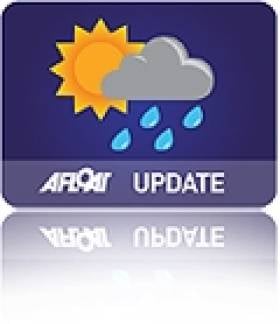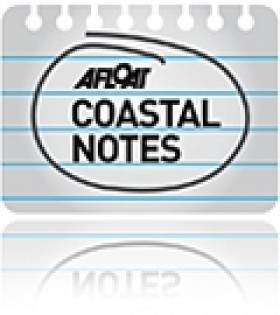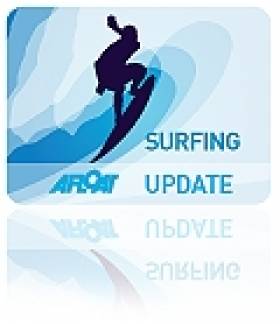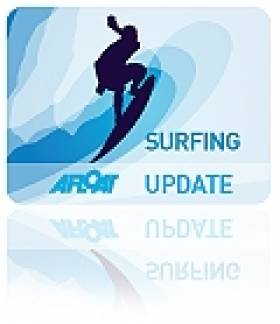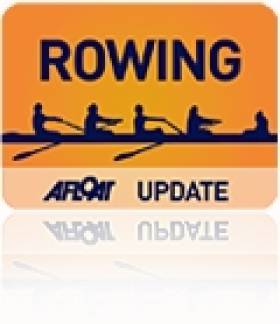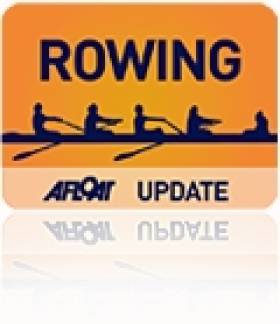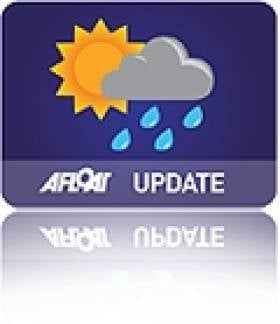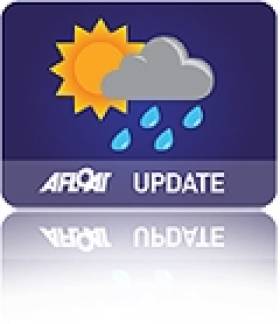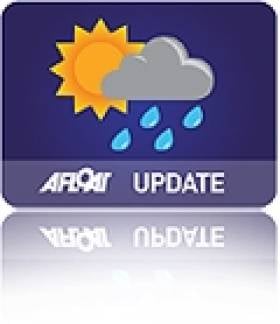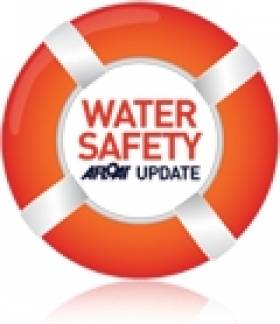Displaying items by tag: Weather
Strong Gales Bring Status Yellow Warning To Start The New Year
#Weather - It's a poor start to the New Year as Met Éireann has issued a Status Yellow warning for small craft.
Southerly gales have developed this morning and will be continuing throughout the day in all coastal waters, with the strongest gusts expected on the Irish Sea.
For anyone who must be at sea today, be careful out there.
Weather Bomb Causes 'Reverse Waterfall' At Doolin
#WildAtlanticWay - Check out this video shot by Eoin O'Hagan for Clare Virtually that shows the intense results of the first winter storm of the year at Doolin in Co Clare.
Indeed, the winds from the so-called 'weather bomb' were so strong at that stretch of the Wild Atlantic Way that they blew the sea spray up and over the cliffs in a reverse waterfall!
Furious Waves Off Inishowen Peninsula As 'Weather Bomb' Hits Ireland
#Weather - Huge waves came crashing over the Inishowen Peninsula yesterday as the Atlantic 'weather bomb' hit the northwest coast.
The video above, care of The Daily Edge, shows the sheer power of the swells that brought waves as high as 62 feet off Irish shores, putting the cream of the world's big wave surfers on high alert.
But as previously reported on Afloat.ie, the best surfing conditions need more than just a big swell - with the forecast wind direction putting paid to any attempts at riding a monster.
Surfers On Alert As Large Swell, High Winds Sweep In
#Surfing - Big wave surfers on the west coast are at the ready today (9 December) as a strong northwest groundswell bears down on Ireland, bringing with it waves of up to 50 feet across the Atlantic.
According to Surfer Today, the storm heading our way has a particularly wide eye, and a fetch - the area of water over which the winds are blowing - larger than the whole of the United Kingdom.
Indeed, it should bring to mind the infamous 'Black Swell' that swept in with Storm Christine almost a year ago, attracting the cream of Europe's surfing crop to the big wave hotspots of the northwest.
However, Richie Fitzgerald of Bundoran's Surfworld tells the Irish Examiner that the wind direction will put paid to any quality surfing action this week.
For the rest of us, meanwhile, the increasing wind speeds - gusting up to 110km/h off Irish coasts - have prompted Met Éireann to issue a Status Orange weather warning for northwestern counties, as RTÉ News reports.
There will be little escape for the rest of the country, either, with a Status Yellow warning in effect for forecast gusts of over 70km/h till Thursday morning (11 December).
Ireland Trial Goes Ahead Despite Poor Weather Forecast
#ROWING: The Ireland trial will go ahead this Saturday at the National Rowing Centre in Cork, but the programme has been altered to take account of the forecast of poor weather. The organisers say there may be a window of opportunity early in the morning and have scheduled events around this possibility. If water assessment is ruled out the plan is to have a rate-capped ergo assessment.
Racing will consist of a time trial, which will give a ranking for a final. Heavyweight men’s pairs and lightweight men’s pairs will race together. Lightweight weigh in will be two hours before the race time of that event.
8am Briefing and number collection.
9am Lightweight men’s pairs/Heavyweight men’s pairs
9.05am Lightweight men’s singles
9.10 Heavyweight men’s singles
9.15 Lightweight women’s singles
9.20 Heavyweight women’s singles
Weather Threat to Ireland Rowing Trial
ROWING: The first Ireland trial, set for this weekend at the National Rowing Centre, has been restricted to this Saturday only because of concerns about the weather, and the event may yet have to be cancelled. The current plan is that competition will start at 9am with lightweight weigh in at 7am. Racing, if it is possible, will be in a time trial format with finals from 11:30am. There may be a chance that the water will be unsafe by then and if so, the time trial will be the only race and will give the ranking for the next set of trials. If the weather deteriorates further the trial may be cancelled. A final decision will be made tomorrow by 4pm tomorrow (Thursday).
Yellow Weather Warning As Remains Of Hurricane Gonzalo Sweep In
#Weather - Met Éireann says a Status Yellow weather warning is in effect for Ireland's coastal waters as the remains of Hurricane Gonzalo are set to sweep over the country from tonight (Monday 20 October).
Mariners are warned to take care as southwesterly gusts and gales are expected to develop this evening, turning northwesterly later tonight and bringing with them heavy rainfall and severe squalls in some areas, particularly in the north and northeast.
Deluge Strikes Howth As Winds and Floods Wreak Havoc
#Weather - Heavy rain overnight has brought some severe flooding to Howth in North Dublin, as this photo taken by Robin Blandford (via Irish Weather News on Twitter) early this morning shows.
Strong winds from the tail end of Hurricane Bertha sweeping in from the Atlantic have destroyed the food village tent prepared for this afternoon's blessing of the boats.
The flooding is now easing as the weather system clears to the northeast across the Irish Sea.
But it was too late for the main road through Howth's village leading up to the summit which buckled under the strain of the floodwaters.
#Weather - While Britain faces a heatwave with temperatures in excess of 30 degrees, thanks to a 'Spanish plume' of hot air sweeping up from Southern Europe today (17 July), only Ireland's south is expected to see the mercury rise significantly.
However, as Independent.ie reports, we're in for a few muggy nights and days of thundery rain that bring the risk of flash floods in vulnerable areas, with Met Éireann issuing a weather warning for the whole country.
"The biggest risk of flooding is with this band of thundery rain moving northwards but anywhere that gets a thunderstorm is at risk," says meteorologist Joan Blackburn.
Independent.ie has more on the story HERE.
Coastguard Rescues Boys From Tiny Dinghy Off Howth
#WaterSafety - The Irish Coast Guard has reiterated its warning to the public not to go to sea in unsuitable craft after two children were recovered from a small dinghy off North Co Dublin on Monday evening.
As TheJournal.ie reports, a routine coastguard patrol off Howth happened upon the two boys who had set out to sea in the tiny inflatable with armbands instead of lifejackets.
The boys were taken aboard the coastguard vessel "for their own safety" and taken back to dry land at Howth Harbour.
Coastguard officials highlighted this incident as a perfect example of the kind of dangerous behaviour the public should avoid on the water.
Coastal rescue teams may get some reprieve from the hot weather over the new few days, however, with Independent.ie reporting a drop in temperatures, cloudy skies and spells of rain from tomorrow.



























